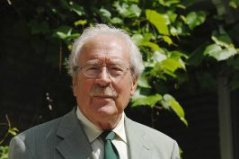
Support the international development of microbiologists through the Middelhoven Fund
Financial contribution from the Middelhoven Fund is solely intended for students and staff active in the field of microbiology.
The impact of your gift
Your gift finances study trips and internships abroad for students and staff active in the field of microbiology. By following an internship abroad or taking a study trip to a foreign country, students and staff are given the opportunity to network and work together with the top in their field.
More than 50 students and staff have already made use of this fund.
The experiences of Hetty KleinJan
- Study: MSc Biology
In April 2013, I started my internship at AgResearch, a research organization located in Palmerston North, New Zealand. I was offered a position as research technician in Food, Nutrition and Health (FNH) team, part of the Food & Bio-based Products group. The FNH team’s purpose is to generate knowledge to assist the development of new ingredients and functional foods with health benefits beyond simply nutrition. In particular by studying how food modulates host-microbe interactions and intestinal barrier function.
Working at AgResearch was an amazing experience. I met scientists from different fields and they were all equally eager to teach me and to share their knowledge. The international environment surprised me at first, but it was great to experience so many different cultures within one group. The FNH team is a close-knit community of people, committed to their jobs, but remarkably social after work as well. I found this the most valuable experience, since it enabled me to become close friends with the students/scientists in the very short time span I had.
I would like to thank the Middelhoven Fund for this opportunity.
The experiences of Laurens van der Vlist
- Study: Biotechnology
- Title report: Mobilization of nutrients from microalgae using rationally selected fungal cell factories
As a mandatory part of my studies at WUR I did an internship; I went to the Technical University of Denmark in 2013. I wanted to go abroad to experience what it is like to study, work and live in another country. At the same time I wanted to participate in a project which was an enrichment of my education. In addition, I was looking for a way to improve my vocal and writing in English. I found a nice project at DTU in Denmark: Mobilization of nutrients from cyanobacteria using rationally selected fungal cell factories.
The aim of this study was to screen for fungal strains which are cultivatable on microalgal biomass and to determine what treatment of the biomass results in most fungal activity. The main conclusion was that minimal and relative cheap adjustments of the microalgal biomass are sufficient to mobilize the nutrients for several diverse fungal strains.
Half a year abroad was a total new experience for me, but it was very enriching. It was really nice to meet so many people from many countries with so many thoughts, cultures, cooking styles. It was a good to experience to be the foreigner yourself. I definitely enjoined my stay in Denmark, thank you.
Interview with founder dr. Wout Middelhoven
The fund was set-up in 1995 by Dr. Wout Middelhoven who worked as a professor at the Microbiology Laboratory for 40 years.
The fund is intended for students and staff to follow an internship or take a study trip in a foreign country in the field of microbiology. “I like to see the money being put to use in the more traditional side of the field, that of microbic physiology and ecology,” explains founder Dr. Middelhoven.
Dr. Middelhoven wanted to give back to the university. “I think that more people should do so. Like others, I have worked here with pleasure for many years.”
